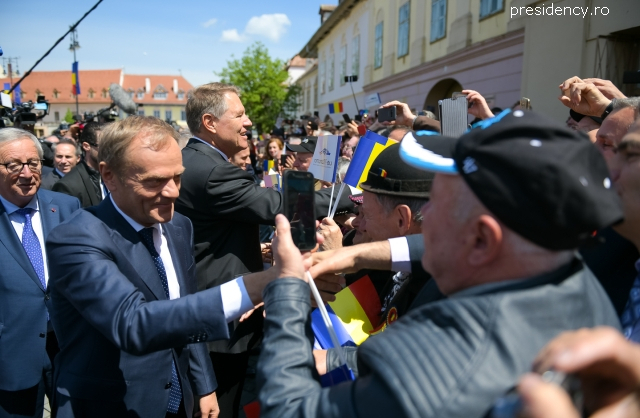A review of Romania’s first presidency of the Council of the EU
Romania has ended its mandate at the helm of the Council of the EU which focused on 4 themes

Corina Cristea, 01.07.2019, 12:00
For the first time since its EU accession in January 2007, Romania held the presidency of the Council of the EU in the first half of 2019. It was an energetic and successful presidency, as the president of the European Council Donald Tusk described it, during which Bucharest managed to successfully have 90 pieces of legislation agreed in the last 100 days before the European elections. The first part of Romania’s mandate focused on completing those files, ahead of the campaign for the EP elections held between May 23 and 26, despite the restrictions imposed by a pre-election period.
Banking union, improving working conditions and social rights, deepening the Single Market, decarbonizing road transport, building a digital Europe and a natural gas directive are some of the pieces of legislation Romania has dealt with. According to the Social Democratic PM Viorica Dancila, these were difficult, complex files that Romania negotiated and brought to completion. Bucharest has been keen on fighting disinformation and on ensuring free and fair elections. Last but not least, Bucharest has contributed to building a safer Europe by promoting pieces of legislation that improve the security of ID cards and reinforce the European border and coast guard. Romania has also been actively involved in the Brexit negotiations, 15 draft laws having been completed and adopted by the Council of the EU which were meant to contain the effects of a possible no deal Brexit in order to protect the citizens and the business environment.
A special moment of Romania’s presidency of the Council of the EU was the European summit held on May 9 in Sibiu, in central Romania. According to the Romanian President Klaus Iohannis, all the people who have got involved in good faith in this effort have contributed to the success of the Romanian presidency of the Council of the EU. He also highlighted the special role of Romania’s team who worked in Brussels, which was also underlined by the Romanian ambassador to Brussels, Luminiţa Odobescu.
Luminiţa Odobescu: “This has been the immense effort of my colleagues in Brussels, of my colleagues in Bucharest, it has been team work, an immense effort. It has been an effort of the Romanian diplomacy and it’s critical to admit that: the Romanian diplomacy has lived up to expectations, and this has been confirmed by others. It is important to acknowledge well-done things and I would like to thank my team in Brussels. They are young people who have approached this presidency with much enthusiasm, pride and stubbornness. I believe it was stubbornness and determination that helped us obtain good results.”
Ambassador Luminiţa Odobescu also said that at the end of a country’s presidency one could symbolically assess that country’s maturity and that country enters a new stage in its evolution within the Union. She added that the expertise acquired by all the institutions involved in this process for several years needs to be further capitalized on in order to promote Romania’s interests within the EU. (translation by L. Simion)






























